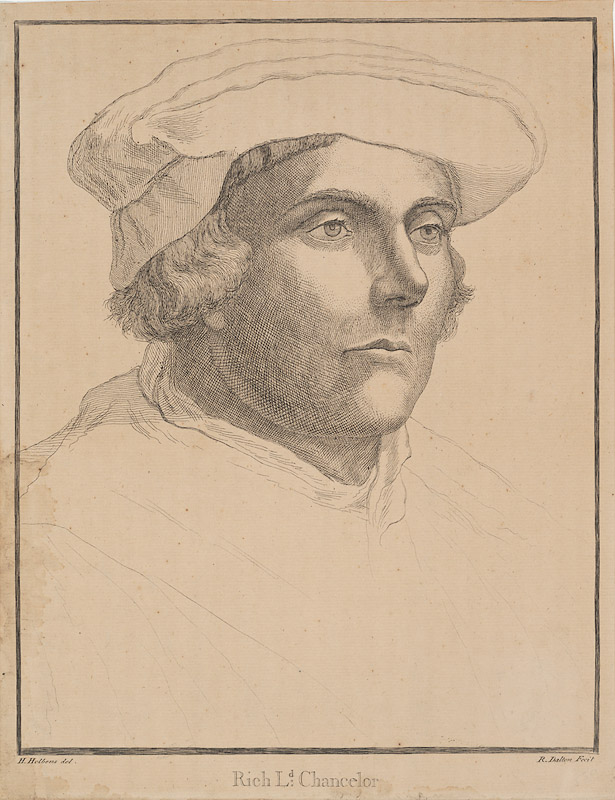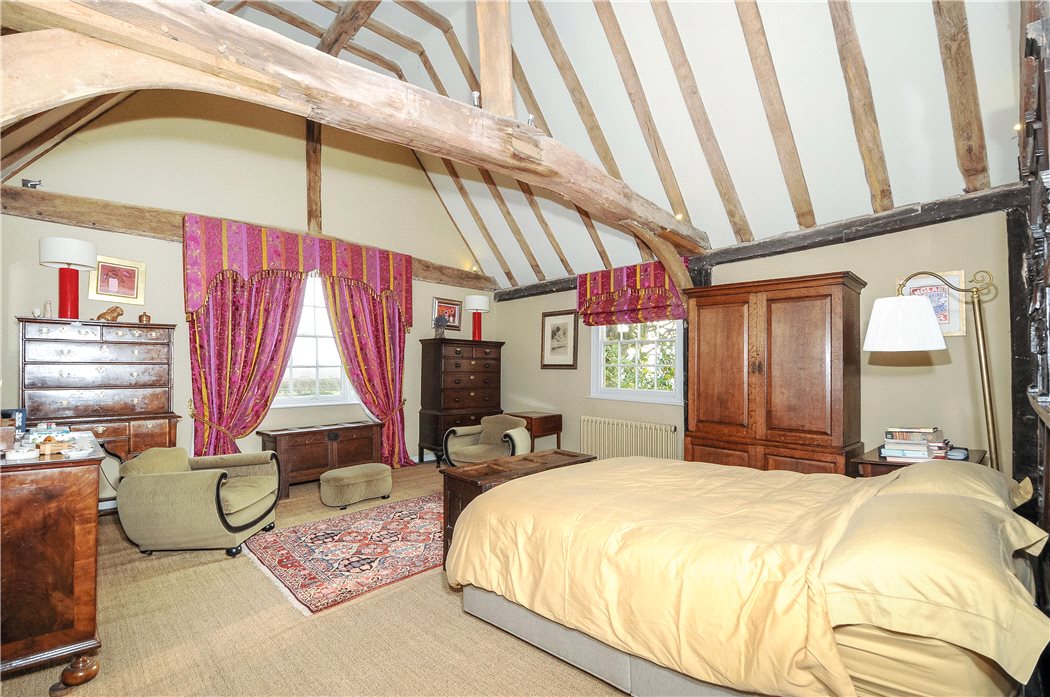Following the Dissolution, Sir Richard Rich, Chancellor of the Court of Augmentation bought Littley Park.
The picturesque Littley Park Farm at Hartford End, near Great Waltham, Essex, is a house rich in history which is now on the market through Knight Frank’s Bishop’s Stortford branch at a guide price of ‘excess £5m’.
A rare survivor of a bygone era, the historic, 319-acre residential farm, set in rolling countryside, has miraculously retained its traditional landscape of ancient hedgerows and wonderful mature trees.
References to Littley Park date from 1295, when it was owned by Leez Priory. Following the Dissolution, Sir Richard Rich, then Chancellor of the Court of Augmentation, bought the priory site and lands and extended the house at Littley Park so that he could follow the progress of the hunt across his entire estate.

Historic Littley Park Farm at Hartford End, Essex, has extensive equestrian facilities within its 319 acres.
Rich is one of the most colourful characters in Tudor history, and one of England’s most infamous villains of the 16th century. His reputation for skulduggery, duplicity, perjury and even torture rest in large part on his role in the persecution of Thomas More and John Fisher.
He was also personally involved in the only torture of Anne Askew, the only woman ever tortured at the Tower of London. Little wonder that historian Hugh Trevor-Roper once described him as a man “of whom nobody has ever spoken a good word”; yet somehow he thrived under successive regimes, ascending to the role of lord chancellor (in the reign of Edward VI) and the rank of baron before passing away peacefully at a ripe old age.

The oldest part of the house dates from the 14th century; a large chimney and an inglenook fireplace were added in the 16th century. The upstairs fireplace bears the coat of arms of the Devereux family, Lord Rich’s grandson having married Walter Devereux’s daughter, Penelope, in the late 1500s.

Littley Park became a working farm in the 17th century and passed, in about 1720, to Guy’s Hospital Trust, which further enlarged and modernised the house, with the addition of large sash windows. The current owners bought Littley Park in 2004, since when it has been sympathetically restored and upgraded, with the addition of extensive equestrian facilities.

Littley Park Farm House, listed Grade II, stands on high ground overlooking the Chelmer valley and has some 3,940sq ft of living space on two floors, with planning and listed-building consent for a further extension.

The kitchen and breakfast room are the heart of the house, off which are the spacious, light-filled drawing room, the dining room and the sitting room, with six good bedrooms and three bathrooms on the first floor.

Two large timber-framed Essex barns and a brick-built period barn have obvious potential for conversion, subject to the necessary consents.

The land at Littley Park — comprising 256 acres of arable land currently farmed under contract, 39 acres of permanent grassland, four acres of woodland and 3.8 acres of water and tracks — lies to the north and south of the main house, the tranquillity, seclusion and centuries of history of which it continues to protect.

‘We always know that the country market is in good spirits when we start getting calls for pretty, manageable weekend houses in Suffolk and Norfolk,’ says Philip Harvey of buying agents Property Vision, who have been fielding enquiries from London buyers, now that the seemingly relentless price growth of houses in the capital has finally ground to a halt.






